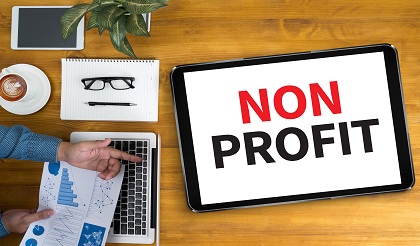
Are you afraid of the world of auctions houses? With our advice, you will be able to carry out your auctions in all serenity and on an equal footing with the most seasoned amateurs.
1. CAN WE KNOW WHO IS THE SELLER?
The Auctioneer acts as an agent between a seller and a buyer and is prohibited from disclosing their identity unless expressly agreed (eg: sale of a prestigious collection) or if the law so provides (eg: sale after judicial liquidation of a company).
The auction house is almost never the owner of the works it offers for sale: a reform of the law on auctions has provided for an exception to this general principle, but if the Auctioneer or one of his employees is the seller, this must be unambiguously advertised.
2. IS THE AUTHENTICITY OF THE WORK GUARANTEED?
The sales operator and, where applicable, the expert who assisted him in preparing the sale, are responsible for the information they carry in the catalog. However, we must be vigilant: the law provides that this information can be modified until the last moment, and in particular orally during the sale.
The references in the catalogs (“attributed to” / “school of” / “after” / etc.) are rigorously codified by a decree of March 3, 1981 . The indication of the name of the author or of a period without other precision means that the authenticity of the work is guaranteed.
This responsibility offers great security for the buyer, who can have the sale canceled a posteriori if he learns that it is a forgery or a late copy. It is nevertheless important to stress that authenticity in artistic matters is not an absolute science and that the opinions of experts can diverge and evolve over time.
3. CAN I CHANGE MY MIND AFTER THE SALE?
The law of auctions largely derogates from the common law of the sale and more particularly from the consumer law. Thus, it suffices for the Auctioneer to pronounce the word “adjugé” for the transfer of property to be effective and for the price to be owed by the person who raised his hand last.
Unless there is an obvious error (which must be reported immediately), we cannot, therefore, go back! The right of withdrawal which usually protects the consumer does not apply to auctions and it is absolutely not possible to renegotiate the price after the sale.
If the buyer nevertheless refuses to pay, the mechanism of the ” crazy auction ” is provided to sanction him. It allows the Auctioneer to present the property again and to impose on the defaulting buyer the difference in price obtained.
It is for this reason that auction houses take as much information as possible about buyers who place “purchase orders”, ie distance purchase proposals.
4. IS IT ESSENTIAL TO GO ON SITE?
There are more and more ways to buy remotely:
-> internet auctions ( Interencheres Live, Drouot Live, Auction, Invaluable, etc.),
-> telephone auctions (generally from certain amounts),
-> by ” firm order ”: the Auctioneer or his assistants bid on your behalf, up to a certain amount that you define, and up to other auctions.
However, we recommend that amateurs go to the public exhibition to see the state of conservation of the works. In fact, the catalog limits itself to pointing out the most obvious accidents and certain expressions may leave room for doubt (“accidents” or “as is”). If you are unable to come to the exhibition, the salesroom staff can give you more information by phone or send you additional photos.
5. WHAT ARE THE ADDITIONAL FEES?
It is essential to consult the General Conditions of Sale because they are different everywhere. However, the costs must be recalled orally at the start of the auction.
The auction amounts do not include “buyer costs” and are expressed exclusive of tax (20% VAT on costs, or 5.5% for books): these are proportional costs that correspond to the remuneration of the operator of sales and which are most often between 15 and 30%. Some auction houses offer declining rates based on the “hammer price”.
Other costs may be added to your invoice if you wish to have the work delivered to you (shipping costs) or if you are slow to collect it after the sale (security costs).
6. AM I SURE TO BUY AT THE AUCTIONS “RIGHT PRICE”?
The auction offers a context of pure and perfect competition: amateurs have the same information and can buy freely. The estimate given by the catalog is therefore indicative since it is the market that determines the price.
The bottom of the estimate range more or less corresponds to the starting price, but it is not uncommon to see the top of the range sprayed on the day of the sale! You are therefore solely responsible for the price you choose to offer for a lot.
Some bids can sometimes be disproportionate, and it is possible to pay an excessive price for work if, like you, another bidder is willing to buy above the market price. It is, therefore, reasonable to think in advance how much you will be willing to go.
7. HOW DO I KNOW IF THE WORK HAS BEEN SOLD?
It is not the hammer blow but only the word “adjugé” which means that a lot has been sold. A simple blow of the hammer can indeed mean that the work has been “withdrawn on behalf of the seller”.
The Auctioneer most often fixes with his seller a “reserve price” below which he undertakes not to sell the part: he, therefore “withdraws” it if this amount is not reached, but he generally refrains from indicating it orally so as not to harm the atmosphere of the sale.
The withdrawn lots are then:
– either returned to their seller,
– or presented in a subsequent sale (generally at a lower price),
– or sold “over-the-counter”: a 2011 reform in fact allows the Commissioners – auctioneers to sell unsold works out of court if a buyer is sorry after the sale. The purchase price then corresponds to the “withdrawal price”.
8. HOW TO KNOW THE RATING OF AN ARTIST?
Most auction houses publish the detailed results of their sales on their website for a few days, but the hammer prices are mainly communicated to databases on the internet or on paper ( Artprice, Akoun, Artnet, Artvalue, etc.) . These directories are essential tools to determine the official rating of an artist, but their access is generally paid.
Before buying work at auction, it is therefore relevant to consult the “quotation” of its author and not to rely too much on the prices charged by individuals, art galleries or antique dealers: they are generally higher than the prices. obtained at auction.
9. WHAT ARE THE MOST RECURRING ABUSE?
Numerous scandals have shaken the auction market in recent years, but these cases cannot concern all auctioneers. It is useful to check the reputation of a sales operator before placing his trust in him. The forums and the specialized press often echo suspicion and embezzlement.
-> The use of “buy orders” (see above 4.) is sometimes the subject of abuse: the hammer-keeper having an interest in selling at the best price, it can “push” the auction artificially to award the lot at the maximum amount stipulated in the purchase order, even though no one else comes forward to raise the stakes. For this reason, the most suspicious of amateurs prefer to carry their auctions themselves and never show their enthusiasm too much in front of a work!
-> If you own valuables and you don’t know anything about the art market, the surest way to avoid a mistake or misappropriation of an object of great price is to ask for several expertises to compare them. I am at your disposal to advise you in your steps as a buyer or seller, or to draw up an inventory outside of any sales project. You can thus, for a reasonable price, obtain valuable information on the value of your movable assets.
-> The scandals which tainted the Hotel Drouot were the work of the “commissionaires”, ie the carriers responsible for emptying the sellers’ apartments. If the company at fault has since been dismantled, it remains necessary to obtain the most exhaustive possible list of the objects that you entrust for sale, particularly at the time of their removal. This is an obligation for the auctioneer (see the code of ethics below).
10. WHAT ARE THE REMEDIES?
If you have tangible evidence of abuse, you must report it to the Council for the Voluntary Sales of Furniture by Public Auction (CVV) which is the supervisory body for sales operators and which can lead to disciplinary




